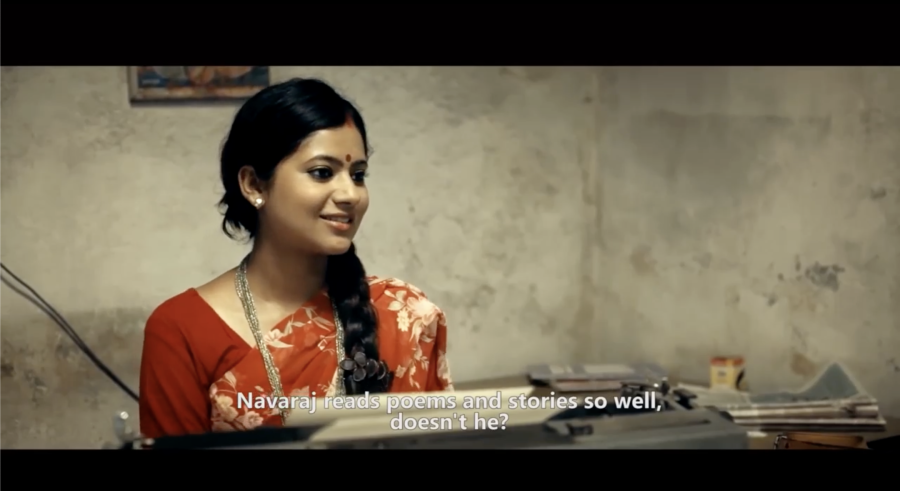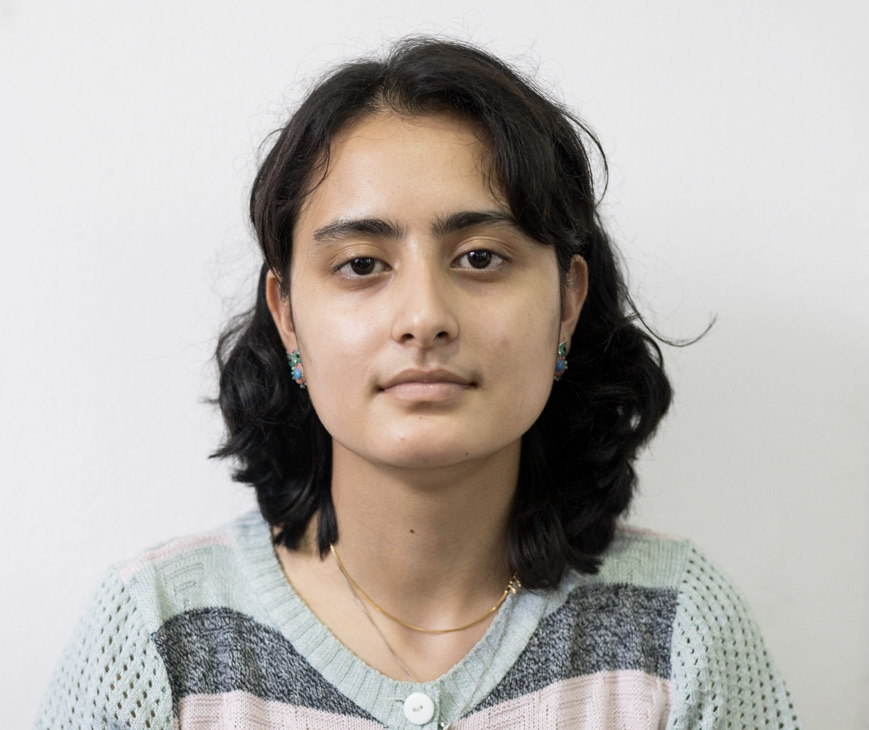Movies
‘Savitri’ blurs the line between ‘good’ and ‘bad’ woman
Sujit Bidari’s short film explores the emotions of a married woman who falls in love with a voice on the radio.
Urza Acharya
Savitri is a typist. Her job is to type out poems of the shringar ras—literature that focuses on beauty and romance—for them to be read out loud on Radio Nepal. And as she types (and later hears) these romantic verses—in these dry months, please come replenish me—she falls in love with the voice that recites them. The voice is her co-worker Navaraj’s. And Savitri is married.
‘Savitri’ is a short film by Sujit Bidari, also known for directing ‘Ainaa Jhyal Ko Putali,’ Nepal’s 2022 Oscar submission. It is based on a short story, ‘Typist’, by writer Bhawani Bhikshu. Bhikshu’s story, which is based in the year 1995, is refreshingly modern, especially in the way it views female sexuality. Not only is the married heroine attracted to a co-worker, but she is also shown to be disenchanted by her husband, longing instead to hear the soothing voice on the radio, reciting love poems.
The story and film remind me of the rare instances where feminine desires were portrayed poignantly. Parallels can be drawn to Satyajit Ray’s ‘Charulata’—a film about a beautiful, intelligent but lonely wife of a newspaper editor. Charulata has everything she needs—plenty of servants at her service, a big gorgeous home, a loving but aloof husband—but longs for connection, one that matches her interest and intelligence. She finds that connection with her brother-in-law, Amar, who is similar to her age. Both are rather fond of literature, and Charu develops feelings for Amar.
In ‘Charulata’ and ‘Savitri,’ the women feel an emptiness in their lives and find ways to fill it up—daring to tread forbidden routes. For Savitri, it’s relishing Navaraj’s lingering gaze as they sit across each other while having lunch. Her words continually dismiss any possibility of an affair between Navaraj and her, especially when her friend Manju constantly teases her—but her eyes are a bit more daring.
As her love for the voice on the radio grows, she is thwarted by the advances by her husband. Moreover, his current unemployment and dependence on her for money is also a cause for annoyance for Savitri (which hints at the monetary expectations men are subjected to). It is not difficult to see that the marriage was possibly an arranged one, and she wishes for a more romantic partner—perhaps one that will recite poems for her.
Films (and literature) in the past have always stuck to the idea of the eternal feminine—a narrative that claims women have inherent values of nurturing, sacrifice, innocence and purity. This manifests in the glorification of motherhood or the all-forgiving, devoted wife/girlfriend. Similarly, the heroines are always passive receivers of romance, rarely shown to initiate anything by themselves.
What ‘Savitri’ and ‘Charulata’ do is portray women beyond the ‘eternal feminine’ trope and hint at the complex emotions and thought processes they go through—as human beings do. Moreover, the films also take a more neutral stance in depicting the women—they aren’t villainised for having such emotions or seen as destroying familial values.
In films, there is a tendency to show women who actively pursue romance or express desires as the ‘femme fatale’—a seductress that will take any route to have the man she wants. This character is almost always juxtaposed with the more conventional heroine, who is pure and innocent. That sort of binary—and the subsequent triumph of the ‘good’ heroine over the femme fatale—reflects the anxieties around feminine values, where women who are expressive are seen as a threat to patriarchal norms. A 2017 book titled ‘Bad Girls and Transgressive Women in Popular Television, Fiction, and Film,’ argues that films show “women [who are] be passive, voiceless, and powerless—worthy of praise—or vengeful, violent, promiscuous, disruptive—[as] requiring restraint.”
However, it is important to note that the ‘femme fatale’ has been reclaimed (by feminist writers and filmmakers) to break the mould and portray heroines beyond their sex appeal, like in ‘Jennifer’s Body’ and, more recently, ‘Promising Young Woman.’
Though ‘Savitri’ and ‘Charulata’ do not carry the typical grandiose of the ‘femme fatale,’ it can be argued they are a more toned down and realistic approach to the femme fatale—in the sense that both Savitri and Charulata show instances of sexual autonomy and harbour conflicting (and perhaps even immoral) emotions. This is refreshing to see on screen.
The films don’t glorify infidelity or sit back as the women become total anarchists (not that I’ll complain if such movies are made). In fact, the endings of both films are quite realistic. But in a world where women are reduced to the ‘damsel-in-distress’, ‘the manic-pixie-dream-girl’ or the ‘crazy-ex-girlfriend,’ any inkling of a sincere portrayal feels surprisingly warm.
—
Savitri
Language: Nepali
Duration: 14 minutes
Director: Sujit Bidari
Cast: Keki Adhikari, Dipesh Bhandari, Manju Devkota
Released: 2013




 9.83°C Kathmandu
9.83°C Kathmandu












